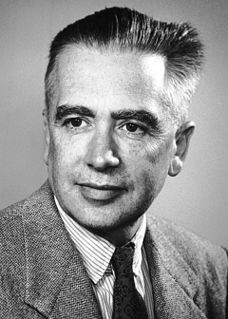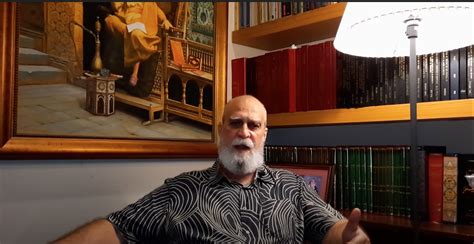A Quote by Emilio G. Segre
In scientific matters there was a common language and one standard of values; in moral and political problems there were many. … Furthermore, in science there is a court of last resort, experiment, which is unavailable in human affairs.
Related Quotes
It's a common perception that science and religion are mutually exclusive. But there are many scientists who would consider themselves to be spiritual people. Not only that, but in the case of climate change - a scientific issue with strong moral implications and difficult decisions to be made - it's essential to connect the science to our values. And for many of us, our values come from our faith.
When physics, chemistry, biology, medicine, contribute to the detection of concrete human woes and to the development of plans for remedying them and relieving the human estate, they become moral; they become part of the apparatus of moral inquiry or science? When the consciousness of science is fully impregnated with the consciousness of human value, the greatest dualism which now weighs humanity down, the split between the material, the mechanical and the scientific and the moral and ideal will be destroyed.
No science of any kind can be divorced from ethical considerations... Science is a human learning process which arises in certain subcultures in human society and not in others, and a subculture as we seen is a group of people defined by acceptance of certain common values, that is, an ethic which permits extensive communication between them.
There is a principle of human affairs that goes back millennia, which is that you don't look in the mirror. You can trace this principle back to the Bible. The designated intellectuals of that time are called prophets, which is a mistranslation of a Hebrew word, but they were basically intellectuals, giving geopolitical analysis, criticizing the moral practice of leadership, etc. Now, these people were not treated very nicely. There were other intellectuals who were treated nicely, namely those who centuries later came to be called false prophets. These were the flatterers of the court.
People who reject transcendent authority can no longer persuade one another through rational arguments; everything is reduced to personal opinion. Debates about ideas thus degenerate into power struggles; we're left with no moral standard by which to measure the common good. For that matter, how can there be a 'common good' without an objective standard of truth?
What Artistic and Scientific Experience Have in Common - Where the world ceases to be the scene of our personal hopes and wishes, where we face it as free beings admiring, asking, and observing, there we enter the realm of Art and Science. If what is seen and experienced is portrayed in the language of logic, we are engaged in science. If it is communicated through forms whose connections are not accessible to the conscious mind but are recognized intuitively as meaninful, then we are engaged in art. Common to both is the loving devotion to that which transcends personal concerns and volition.
The confidence in the unlimited power of science is only too often based on a false belief that the scientific method consists in the application of a ready-made technique, or in imitating the form rather than the substance of scientific procedure, as if one needed only to follow some cooking recipes to solve all social problems. It sometimes almost seems as if the techniques of science were more easily learnt than the thinking that shows us what the problems are and how to approach them.
If there is no absolute moral standard, then one cannot say in a final sense that anything is right or wrong. By absolute we mean that which always applies, that which provides a final or ultimate standard. There must be an absolute if there are to be morals, and there must be an absolute if there are to be real values. If there is no absolute beyond man's ideas, then there is no final appeal to judge between individuals and groups whose moral judgments conflict. We are merely left with conflicting opinions.



































